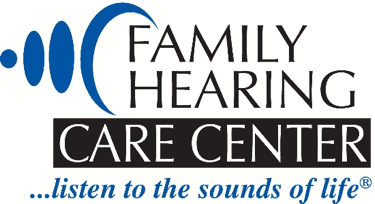
Are Women More Prone to Painkiller Induced Hearing Loss?
As the world evolves and medical research progresses, the correlation between certain medications and adverse effects on health continues to draw attention. One such correlation that has gained increasing interest is the link between painkillers and hearing loss. Hearing loss is a prevalent condition that affects millions of individuals worldwide, impacting their overall quality of life and communication abilities. While painkillers have proven to be effective in managing various discomforts, understanding their potential association with hearing loss is crucial, especially when considering gender-specific differences in susceptibility. In this brief topic analysis, we will delve into the relationship between painkillers and hearing loss, with a particular focus on women, offering valuable insights into this important health concern.
The Types of Painkillers Involved
Painkillers, or analgesics, are a diverse group of medications designed to alleviate pain and discomfort caused by various conditions, injuries, or illnesses. The most common types of painkillers include nonsteroidal anti-inflammatory drugs (NSAIDs) and opioids. NSAIDs, such as ibuprofen and naproxen, are widely available over-the-counter and are used to relieve mild to moderate pain and reduce inflammation. Opioids, on the other hand, are prescribed for more severe pain relief but carry a higher risk of dependence and addiction.
The Growing Concern: Painkillers and Hearing Loss
Over the years, researchers have conducted studies to explore the potential link between painkillers and hearing loss. While the exact mechanisms remain uncertain, several hypotheses have been proposed to explain this correlation. One possible explanation is that pain killers, especially NSAIDs, might interfere with blood flow to the cochlea, the delicate, spiral-shaped structure in the inner ear responsible for converting sound vibrations into electrical signals that the brain can interpret as sound. By impeding blood flow, these drugs may damage the cochlea and lead to hearing impairment.
Another theory involves the role of painkillers in reducing inflammation. While inflammation is a natural defense mechanism in the body, chronic inflammation can have detrimental effects on various organs, including the ear. NSAIDs work by suppressing inflammation, but this may also impact the ear’s ability to heal and regenerate, potentially contributing to hearing loss over time.
Understanding the Gender-Specific Connection
Recent studies have indicated that gender plays a significant role in the correlation between painkillers and hearing loss. Women, in particular, have been identified as being more vulnerable to this association. One study published in the American Journal of Epidemiology revealed that long-term use of NSAIDs was associated with a higher risk of hearing loss in women but not in men. The reasons behind this gender disparity are not yet fully understood, but hormonal differences and physiological variations between men and women may play a role.
Estrogen, a hormone found in higher levels in women, has been suggested to have a protective effect on the auditory system. Some researchers propose that NSAIDs may interfere with estrogen receptors in the ear, rendering the auditory system more susceptible to damage and hearing loss. Moreover, the use of painkillers during pregnancy has also been linked to an increased risk of hearing loss in the offspring, indicating the possibility of a prenatal impact on auditory development.
Practical Recommendations and Alternatives
Given the potential risks associated with pain killers and their potential link to hearing loss, it is essential to approach their use with caution, especially for women. Here are some practical recommendations:
- Limit Usage: Pain killers should be used on an as-needed basis and for the shortest duration necessary. Avoid prolonged or excessive usage, especially without medical supervision.
- Consult Healthcare Providers: If pain management is required for a chronic condition, consult a healthcare provider for alternative treatment options that may carry a lower risk of hearing impairment.
- Consider Non-Drug Therapies: Explore non-drug therapies such as physical therapy, acupuncture, or mindfulness-based techniques to manage pain effectively.
- Protect Hearing: Use hearing protection when exposed to loud noises to reduce the risk of further hearing damage.
Putting It All Together
The correlation between painkillers and hearing loss is a complex and evolving area of research. While the precise mechanisms and gender-specific differences are still being explored, evidence suggests that women may be more susceptible to hearing loss from pain killer use. As healthcare professionals, patients, and individuals, it is crucial to be aware of this potential association and adopt responsible pain management strategies.
By exercising caution, seeking medical advice, and considering non-drug alternatives, we can prioritize both pain relief and auditory health. Future research will undoubtedly shed more light on this topic, allowing us to make more informed decisions about pain management and its impact on hearing, particularly in women. Until then, let us remain vigilant and committed to promoting overall well-being while mitigating potential risks.
If you have any questions regarding this topic or any other questions related to your hearing, please contact us. Our friendly staff of professionals are ready to assist you.
